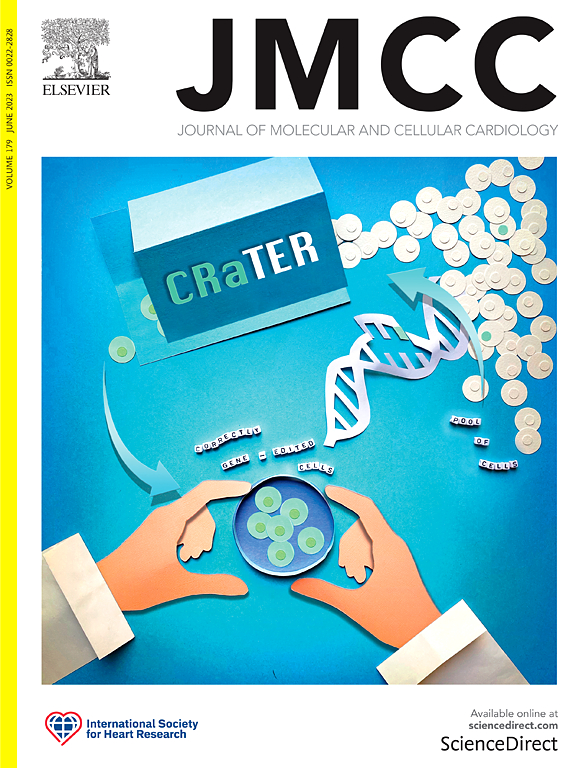Dual inhibition of Mst1 and Mst2 exacerbates cardiac dysfunction during pressure overload stress in mice
IF 4.7
2区 医学
Q1 CARDIAC & CARDIOVASCULAR SYSTEMS
引用次数: 0
Abstract
Heart failure remains a leading cause of morbidity and mortality worldwide. The evolutionarily conserved Hippo-Yap signaling pathway regulates cardiac responses to stress and progression to heart failure. Mst1 and Mst2 are the core Hippo pathway kinases, yet their role within chronically stressed cardiomyocytes remains largely unknown. Genetic mouse models revealed that the extent of Mst1/2 inhibition elicits opposing effects on stress-induced cardiac dysfunction. Yap-TEAD1 activation, cell cycling, and hallmarks of cardiomyocyte dedifferentiation, which can impair contractile function during sustained stress, were enhanced in Mst1/2 double knockout hearts. These findings implicate a physiological function of Mst1/2 to promote cardiomyocyte maturity in the adult heart.

Mst1和Mst2的双重抑制加剧了小鼠压力过载应激时的心功能障碍。
心力衰竭仍然是世界范围内发病率和死亡率的主要原因。进化上保守的Hippo-Yap信号通路调节心脏对压力和心力衰竭进展的反应。Mst1和Mst2是核心的Hippo通路激酶,但它们在慢性应激心肌细胞中的作用仍然很大程度上未知。遗传小鼠模型显示,Mst1/2抑制程度对应激性心功能障碍产生相反的作用。在Mst1/2双敲除心脏中,Yap-TEAD1的激活、细胞周期和心肌细胞去分化的特征(这些特征可以在持续压力下损害收缩功能)得到增强。这些发现暗示了Mst1/2在促进成人心脏心肌细胞成熟方面的生理功能。
本文章由计算机程序翻译,如有差异,请以英文原文为准。
求助全文
约1分钟内获得全文
求助全文
来源期刊
CiteScore
10.70
自引率
0.00%
发文量
171
审稿时长
42 days
期刊介绍:
The Journal of Molecular and Cellular Cardiology publishes work advancing knowledge of the mechanisms responsible for both normal and diseased cardiovascular function. To this end papers are published in all relevant areas. These include (but are not limited to): structural biology; genetics; proteomics; morphology; stem cells; molecular biology; metabolism; biophysics; bioengineering; computational modeling and systems analysis; electrophysiology; pharmacology and physiology. Papers are encouraged with both basic and translational approaches. The journal is directed not only to basic scientists but also to clinical cardiologists who wish to follow the rapidly advancing frontiers of basic knowledge of the heart and circulation.

 求助内容:
求助内容: 应助结果提醒方式:
应助结果提醒方式:


